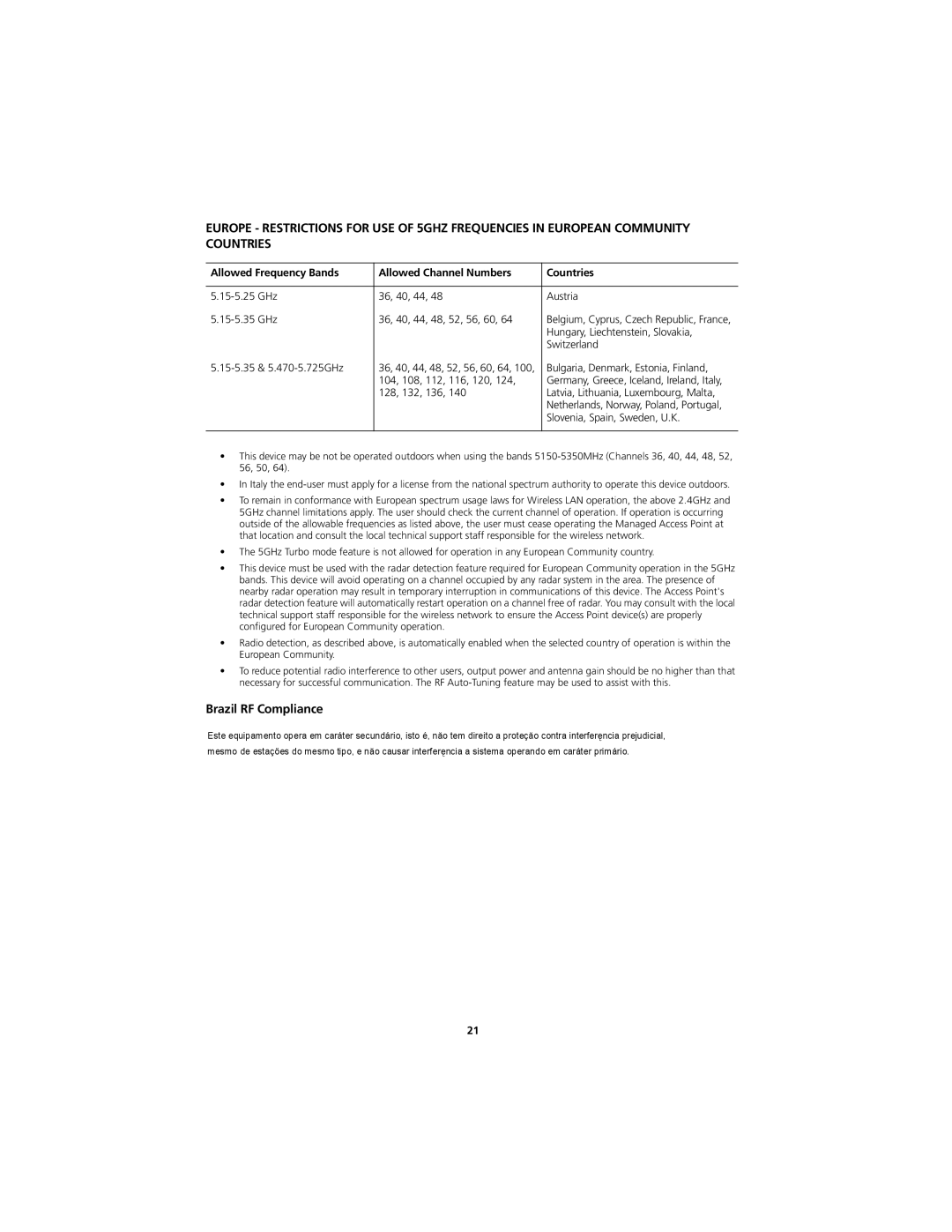EUROPE - RESTRICTIONS FOR USE OF 5GHZ FREQUENCIES IN EUROPEAN COMMUNITY COUNTRIES
Allowed Frequency Bands | Allowed Channel Numbers | Countries | |
|
|
|
|
GHz | 36, 40, 44, 48 | Austria | |
GHz | 36, 40, 44, 48, 52, 56, 60, 64 | Belgium, Cyprus, Czech Republic, France, | |
|
|
| Hungary, Liechtenstein, Slovakia, |
|
|
| Switzerland |
& | 36, 40, 44, 48, 52, 56, 60, 64, 100, | Bulgaria, Denmark, Estonia, Finland, | |
|
| 104, 108, 112, 116, 120, 124, | Germany, Greece, Iceland, Ireland, Italy, |
|
| 128, 132, 136, 140 | Latvia, Lithuania, Luxembourg, Malta, |
|
|
| Netherlands, Norway, Poland, Portugal, |
|
|
| Slovenia, Spain, Sweden, U.K. |
|
|
|
|
•This device may be not be operated outdoors when using the bands
•In Italy the
•To remain in conformance with European spectrum usage laws for Wireless LAN operation, the above 2.4GHz and 5GHz channel limitations apply. The user should check the current channel of operation. If operation is occurring outside of the allowable frequencies as listed above, the user must cease operating the Managed Access Point at that location and consult the local technical support staff responsible for the wireless network.
•The 5GHz Turbo mode feature is not allowed for operation in any European Community country.
•This device must be used with the radar detection feature required for European Community operation in the 5GHz bands. This device will avoid operating on a channel occupied by any radar system in the area. The presence of nearby radar operation may result in temporary interruption in communications of this device. The Access Point's radar detection feature will automatically restart operation on a channel free of radar. You may consult with the local technical support staff responsible for the wireless network to ensure the Access Point device(s) are properly configured for European Community operation.
•Radio detection, as described above, is automatically enabled when the selected country of operation is within the European Community.
•To reduce potential radio interference to other users, output power and antenna gain should be no higher than that necessary for successful communication. The RF
Brazil RF Compliance
Este equipamento opera em caráter secundário, isto é, năo tem direito a proteçăo contra interferęncia prejudicial, mesmo de estaçőes do mesmo tipo, e năo causar interferęncia a sistema operando em caráter primário.
21
